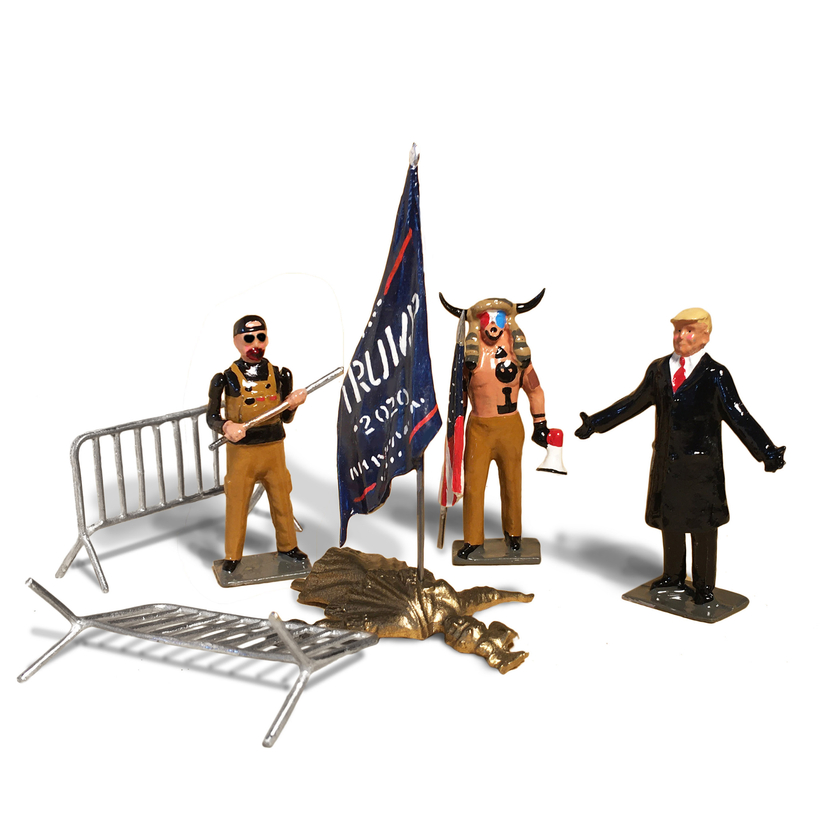For four decades, Bill Hocker has been producing sets of traditional metal toy soldiers from his workshop in Berkeley, California. He sells more than 520 sets of handmade and glossy-painted figures primarily representing 18th- and 19th-century conflicts. But a few years ago, Hocker decided to depict a more contemporary clash and create sets from the Donald Trump presidency.
Seeing Trump at two inches tall (with appropriately short fingers) makes an inherently satiric impression, but Hocker had serious intentions. “Like many,” he says, “I was enraged by the rise of a sociopathic demagogue to the most elevated position in the land.” Inspired by artist Kate Kretz, who has deconstructed MAGA hats and refashioned them into Klan hoods and Nazi headgear, Hocker sought to make a statement with his toy soldiers. So far, he has produced seven sets.


